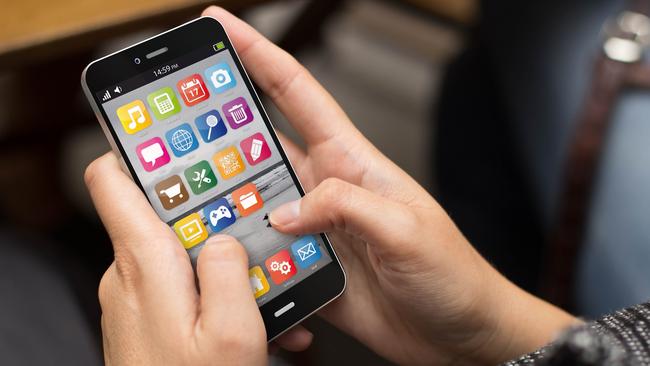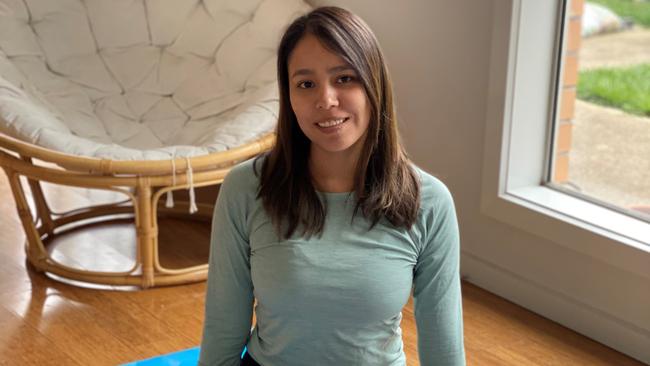More Australians turn to digital tools to manage their health
A growing number of Australians are seeking medical help from “Dr Google” and digital tools to manage their health, raising concerns about how we engage with healthcare post COVID-19.
SmartDaily
Don't miss out on the headlines from SmartDaily. Followed categories will be added to My News.
A growing number of Australians are seeking medical help from “Dr Google” and digital tools to manage and monitor their health, raising concerns about how we engage with healthcare post COVID-19.
Others are making fewer in-person visits to their GPs and pharmacies and instead accelerating their take-up of telehealth services, health apps and online medicine deliveries.
New data from the vital.ly 2021 Digital Health Report shows one in three reduced in-person visits to their healthcare practitioner last year, while telehealth appointments surged.
It also found that 56 per cent plan to use digital tools or apps to help monitor their health in the next 12 months.

What we’re using apps for is changing. An overwhelming nine in 10 people aged 18-24 are using apps to manage their sleep and mental health.
While these figures suggest young people may be experiencing more mental distress than the average Australian, vital.ly director of education Jacqui Fahey says this generation is most likely to take control of their health with the use of digital support tools.
Diet and exercise trackers continue to be popular, but the biggest trend to emerge is online shopping for medication and supplements.
Two-thirds of Aussies are expected to buy medicines and supplements online in the next 12 months, as the need for speed and convenience become permanent fixtures of our lives.
Alejandra Rubio, 26, used a fitness watch to track her heart rate, calories and steps in lockdown and requested prescriptions from her GP online, which were sent via email.
Antibiotics, probiotics and digestive supplements were delivered to her door.

“I do everything on my phone, so having all my appointments, prescriptions and health trackers in one place is really helpful,” Rubio says.
“I’m not restricted by time or location. I can have my GP appointment via telehealth in 15 minutes and I don’t need to spend a few hours getting to the doctor’s office and waiting, only to be seen for a few minutes.”
GP Min Yeo says digital tools can be very useful for some people — but there are pitfalls.
One big limitation of health devices is that many people don’t know what to do with the data they see about their heart rate or how many hours they slept.
“The issue around digital apps is reliability and how producible are those results,” Dr Yeo says.
“Checking your heart rate and step count can be a good motivator, similar to apps like Calm and Headspace to help relieve stress and improve sleep.”
While data could make us healthier, Dr Yeo firmly believes in the importance of maintaining human connections in health management — the old-fashioned way.
“Nothing will ever replace a face-to-face consultation with a doctor,” she says. “If there is a new problem or a change in your health habits, it needs to be seen by a GP.
“Most patients are not aware that we are trained to observe them in the waiting room. For example, their posture and the way they walk and pick up their belongings are all forms of knowing the patient and the diagnosis — things we might not visibly see on telehealth.”
Ms Fahey says accessibility to online health did not mean Australians would favour technology over the advice of their GP.
“Digital apps are not for everyone and people need human connections and professional advice as much as they need access to information and tools,” she says.
PROS AND CONS OF DIGITAL TOOLS
PROS
● Data can be a strong motivator to improve exercise regimes and diet, with the “gamified” nature of health tracking something people respond positively to.
● Health tracking allows previously disparate data points to come together and provide deeper insights into our health and wellbeing. Adding more information provides crucial information to help health professionals keep us well.
● When we measure our health/fitness regimes daily, it drives our competitive nature to want to do better and to improve.
CONS
● Downside of health-related data is privacy. When we are creating this much personal data, hacks become far more serious than they have been to date.
● Users who suffer from serious health conditions that require monitoring, such as measuring blood sugar levels for a diabetic, need to be careful that the data from external devices is not the only option used to track their health, as if the data is inaccurate, then that could be potentially dangerous to the user.
*Technology expert and futurist Steve Sammartino
Originally published as More Australians turn to digital tools to manage their health



